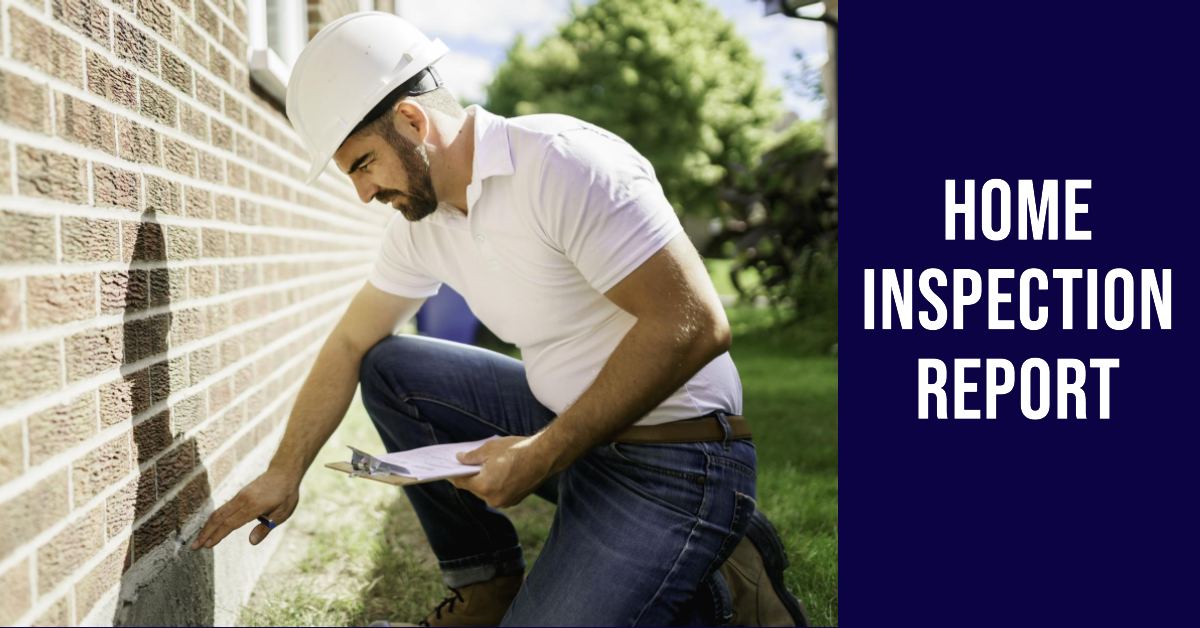In New Jersey, the cost of a home inspection typically ranges from $250 to $1000 or more, depending on the factors mentioned below. It's e...
Decoding a Home Inspection Report: Uncovering Red Flags and Navigating Repairs

A home inspection report is a critical document that provides potential homeowners with valuable insights into the condition of a property. It serves as a comprehensive assessment conducted by a qualified home inspector to identify any underlying issues that may not be evident to the untrained eye. Decoding this report is essential for making informed decisions during the home-buying process. In this blog, we will explore what's included in a home inspection report, typical things a home inspector looks at, red flags to watch for, and tips on how to negotiate repairs effectively.
A standard home inspection report typically covers the following areas:
Structural Components: This section assesses the condition of the foundation, walls, roof, and overall structural integrity of the property.
Electrical Systems: The report will detail the state of the wiring, electrical panels, outlets, and any safety concerns.
Plumbing and Water Systems: This part covers the condition of pipes, water pressure, drainage, and potential leaks.
HVAC (Heating, Ventilation, and Air Conditioning): The inspection report should mention the age, condition, and efficiency of the heating and cooling systems.
Roofing: The report will detail the roof's age, condition, and any signs of damage or wear.
Insulation and Ventilation: This section evaluates the insulation levels and ventilation systems in the attic, walls, and floors.
Exterior and Interior Concerns: The inspection report should include assessments of siding, windows, doors, appliances, ceilings, walls, and flooring.
Safety and Health Hazards: Any potential risks like asbestos, lead-based paint, radon, mold, or pest infestations should be mentioned.
Typical Things a Home Inspector Looks at:
During a home inspection, the qualified inspector will carefully examine the property and assess the above-mentioned areas. They will look for signs of wear, damage, improper installations, and safety hazards. They may use various tools, including thermal imaging cameras and moisture meters, to identify hidden issues.
Red Flags to Watch for in a Home Inspection Report:
While not all findings in a home inspection report are deal-breakers, certain red flags require immediate attention:
Foundation Issues: Cracks, settlement, or bowing in the foundation may indicate significant structural problems.
Electrical Problems: Outdated electrical systems, exposed wires, or overloaded circuits pose safety risks.
Plumbing Leaks: Persistent leaks can lead to water damage and mold growth.
Roofing Damage: Extensive roof damage may necessitate costly repairs or replacement.
Mold and Asbestos: Presence of mold or asbestos can be hazardous to health and require professional remediation.
How to Negotiate Repairs:
When negotiating repairs after receiving a home inspection report, consider the following tips:
Prioritize: Focus on essential repairs that affect safety, health, or structural integrity.
Get Quotes: Obtain estimates from qualified contractors to understand the repair costs better.
Request Repairs or Credit: Negotiate with the seller to address the repairs before closing or ask for a credit to cover the costs.
Be Reasonable: Be willing to negotiate and compromise to reach a fair agreement.
Conclusion
Decoding a home inspection report is crucial for understanding a property's condition and making informed decisions during the home-buying process. Be attentive to red flags that may indicate significant issues and prioritize necessary repairs. Remember, a home inspection report empowers you to negotiate with the seller, ensuring your new home is safe, comfortable, and a sound investment for the future. With the insights provided by a professional home inspector, you can embark on your homeownership journey with confidence.
2023-07-25 15:13:23





